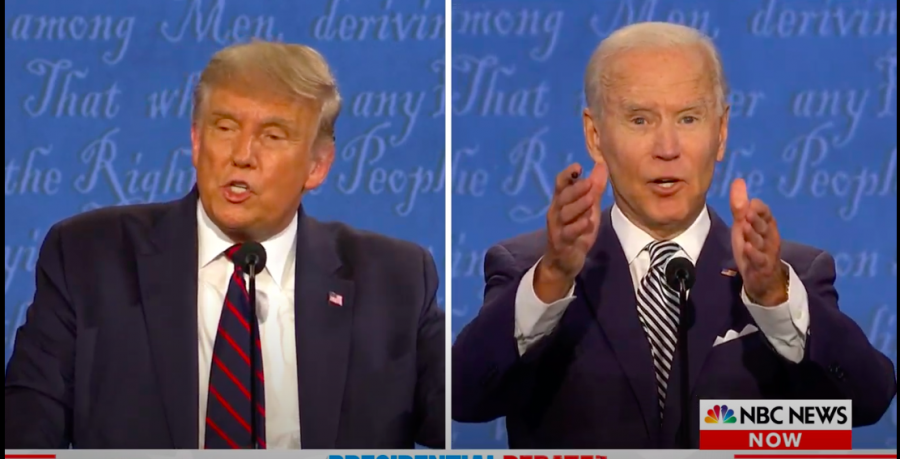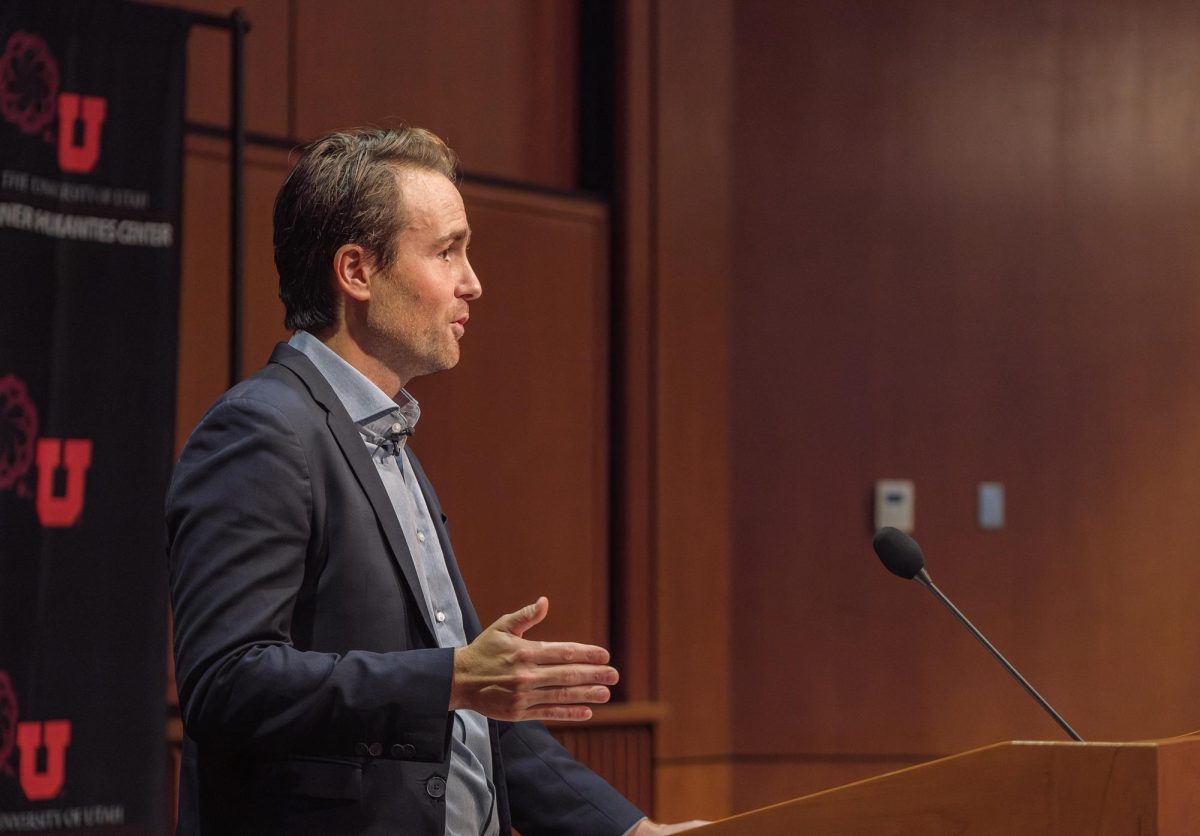David Wallace-Wells, a New York Times science journalist and author of “The Uninhabitable Earth,” spoke as a special guest for the Tanner Humanities Center at the University of Utah on Tuesday, National Climate Action Day, about climate change uncertainties and the need for global decarbonization policy reformation.
The event, hosted by the Tanner Humanities Center, is a part of the Tanner Lectures on Human Values. Hollis Robbins, Dean of the College of Humanities, said during the event, “These lectures aim to advance and reflect on scholarly and scientific learning and embrace the entire range of values pertinent, pertinent to the human condition, interest, behavior and aspiration.”
Wallace-Wells began the lecture by comparing the published data of early pandemic times versus published data about climate change.
He discussed his frustration as scientists published data in the winter of 2021, estimating the number of COVID-related deaths, symptoms and timelines, yet were wrong each time. He felt like he had no control over the situation.
“I was kind of outraged by this,” he said. “I felt sort of betrayed by modelers, but the question of how we model the future is not just an epistemological manner, or quantitative question or something for policy debates. It has a kind of a spiritual dimension to what the future looks like.”
Wallace-Wells said data helps us not only process the future, but understand the present too. He encouraged people to consider, “how we relate to the stories we tell about that future, shape our understanding of it, and when we finally encounter it, how they shape our understanding of the present.”
Just as modelers failed to share accurate or helpful data during the early pandemic due to uncertainty, Wallace-Wells said it’s important to consider the uncertainty in the narrative of climate change to better understand the data.
According to Wallace-Wells, today, the world has warmed 1.3 degrees Celsius above the pre-industrial average.
“That probably doesn’t sound very much,” Wallace-Wells said. “It actually, today, places us entirely outside that window of temperatures that enclose all of human history.”
Wallace-Wells added it’s like modern-day humans have landed on a new planet.
“We have to figure out how the civilization that brought us to this point can survive,” he said. “Humans will need to become more adaptable to extreme heats, storms and wildfires.”
Wallace-Wells brought up ecological disasters such as the Maui fire, floods in Libya, and heatwaves in Asia, the Middle East and Europe. He explained phenomenon like these occur once in 500 years, however are now happening on a much more frequent basis.
“But it’s a reminder of a vernacular level of just what a different set of conditions we’re living in today, and everything needs to build expectations in the future,” he said.
He defined climate change as Earth’s new landscape.
“But that landscape is uncharted territory,” he said. “Here the heating of the planet is an experiment that we are running only once, and it’s from almost everything that we’ve ever taken for granted about the environmental basis of our lives into disarray.”
Wallace-Wells said the solution to stopping human-related global warming is by decarbonization, which means completely eliminating carbon use.
He explained carbon dioxide is commonly thought of as a gas that dissipates, however, it actually sits in the atmosphere like a solid mass.
“Literally, we can measure it by weight,” he said. “And all that stuff hanging in the atmosphere weighs more than everything that humans have ever built on the surface. It also weighs more than every living thing. So in this way, we’ve built a larger and more monumental human civilization in the atmosphere than you’ve ever had on the planet itself.”
This is the planet’s primary problem. If current food and transportation systems, for example, can eliminate the use of gas, oil and coal, the mining footprint could be cut by a factor of 100, according to Wallace-Wells.
However, while climate scientists understand the data, Wallace-Wells reiterated there is still uncertainty in the science that needs to be considered.
He asked, “How do we make sense of data that tells us that sea ice anomalies, for instance, are a one in five sigma or six sigma or seven sigma event? And where does the branching of chance go from there?”
“That’s the job of science, of course, to attack these uncertainties and give us an even clearer picture,” he said.
Wallace-Wells encouraged political action, however, he also encouraged individual action such as simply discussing the topic with one’s social circles — which is what promotes action and leads to policy reform.
In an interview with the Chronicle, Wallace-Wells said he does not consider himself an environmentalist, but someone who is terrified by the projected data of climate change.
“It’s inescapable,” he said. “It’s global and all-affecting, tied up in so many other human issues, injustice, economies and geopolitics. We can’t escape it.”














